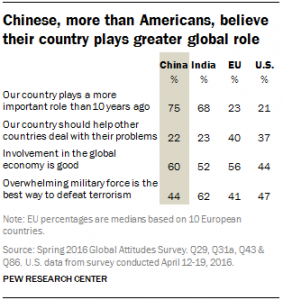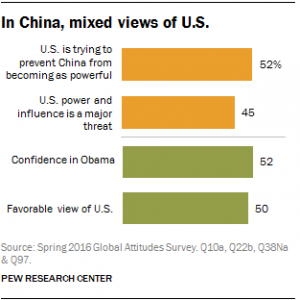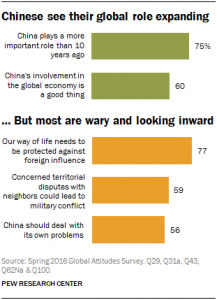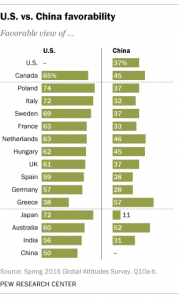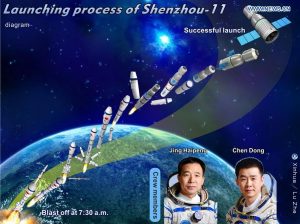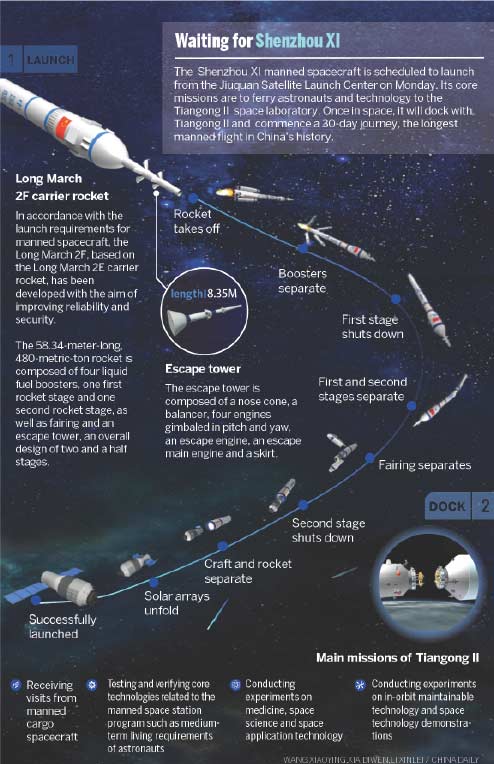China’s Aviation Market WIll be World’s Largest by 2024
China is set to overtake the U.S. to become the world’s largest aviation market by passengers by 2024 as more people take to the skies domestically and internationally, according to the International Air Transport Association.
The number of people flying to, from and within China will almost double to 927 million annually by 2025, from 487 million last year, according to forecasts from IATA made in an e-mailed statement, and reach 1.3 billion by 2035. In comparison, passengers in the U.S. will increase to 904 million by 2025, from 657 million last year, according to the predictions.
– Bloomberg
Formation of the Eurasia Market Through “One Belt, One Road”
This is a good introduction to the building of a modern day Eurasian land bridge that will ultimately form a massive market consisting of 70% of the world’s GDP. The impetus for this “New Silk Road” is Chinese President Xi Jinping’s “One Belt, One Road” initiative that he introduced three years ago. Without much fanfare, China has been helping to build transportation and other infrastructure all along age old Silk Road land and sea routes as well as providing much needed funding through new China founded multilateral banks such as the Asian Infrastructure Investment Bank, the New BRICS bank, along with various regional project funding initiatives.
http://www.forbes.com/sites/wadeshepard/2016/10/21/eurasia-the-worlds-largest-market-emerges/#47b87781783d
Chinese More Confident of China’s Role in the World
The Pew Research Center (PRC), the polling and research arm of the Pew Charitable Trusts, conducts annual surveys of global attitudes and trends that provide useful glimpses into and analyses of world opinion on various social and political issues. Its most recent poll of 3,154 Chinese respondents across the country last spring (results and analyses came out in early October) on the Sino-US dichotomy sheds light on the growing confidence of Chinese nationals about their country’s economic prospects and role in the world.
The most striking finding of the poll was that a full 3/4 (75%) of the respondents recognized China’s growing prominence in world affairs as opposed to 10 years ago with only 10% dissenting. Significantly, just under half of the interviewees (45%) said “the US is a major threat” facing the country and the world, more so than other potential threats such as the Islamic State, global economic turbulence, climate change, cyber-attacks, and others. In addition, 52% believed the US is trying to prevent China’s rise as an equal great power with only 20% thinking the US is magnanimous enough to accept China’s ascent.
In part, this confident view of China’s role stems from perceptions of how China is doing in the global economy. Compared to their European and American counterparts, most Chinese (60%) believe the country has benefitted immensely from its involvement in the global economy in terms of opening new markets and exploiting opportunities for growth with only 23% saying the contrary. What’s more, 76% believed economic conditions will a little or a lot better over the next 12 months and even more (82%) say the economic prospects of the next generation will be better than the current one.
In fact, PRC surveys indicate consistent and overwhelming satisfaction with the direction of their country for over the past decade, the only exception being in 2002 when just 48% said they were content. This is hardly surprising since 41% of China’s economy was trade driven in 2015, up 11 percentage points from 1990 but down 24 point from the high point in 2006. The IMF projects 6.6% GDP for China this year and a little lower next year. By comparison, just 42% of respondents in 10 EU countries and 44% in the US say their economies are doing well.
At the same time, however, Chinese citizens remain somewhat reticent about getting more involved overseas while being wary of increased outside influences. Despite confidence in their own economy, 77% suggest their way of life needed to be protected from foreign influences, surprisingly up 13 percentage points since 2002. Moreover, 59% were worried that territorial disputes with neighbouring countries could lead to armed conflict. As well, a majority (56%) wants the government to focus on China’s own problems as opposed to getting more involved abroad either politically or economically.
Interviewed by the Las Angeles Times newspaper, Bruce Stokes, director of Global Economic Attitudes program at the PRC and one of the authors of the report, concluded, “(The Chinese) think they play a bigger role globally than they did 10 years ago, and they’re pretty happy about that. And that does reflect an underlying reality, in the sense that it’s indisputable that China is more important. They could be full of themselves – but by the same token, they’re very worried about foreign influences. There is this combination of self-confidence, and at the same time, real wariness. I can’t explain that, but it seems it’s something we need to pay attention to – because there is an unease there…”
In this connection, a PRC survey conducted a year earlier on how the world views the US versus China offered a couple interesting takeaways: First, a slight majority (51%) of respondents across the world still regarded the US as the leading economic power, almost double those who perceived the reverse (26%). Yet, in the same breath, most people believe China either will eventually replace or already has replaced the US as the world’s leading superpower. Second, in terms of the US’s geopolitical rivalry with China, US’s “pivot” to Asia, both economically and militarily, received general public support on both sides of the Pacific.
The Trans Pacific Partnership trade and investment treaty that excludes China, pushed hard by the Obama Administration but openly opposed by both presidential contenders, is supported by majorities or pluralities in five of eight TPP countries who say it is more important to have strong economic relations with the US than with China. On the military front, half or more of the publics in six of ten countries think America’s rebalance of 60% of its military forces to the Asia-Pacific is a good thing for peace and stability in the region.
It would be interesting to see a new survey done in light of the foreign policy reversal of Philippine President Rodrigo Duterte and the start of various multilateral economic and banking initiatives pursued under Xi Jinping’s presidency; namely, the Asian Infrastructure Investment Bank, the BRICS bank, One Belt One Road, various free trade area talks proposals, and numerous infrastructure projects being undertaken by China around the world.
Duterte: Unlike the West, China Never Criticizes, She Just Helps Quietly
Philippine President Rodrigo Duterte is currently on a state visit to China. In an interview with China Central Television aired before his departure, Duterte praised China for its help in his administration’s war on drugs.
http://english.cctv.com/2016/10/19/VIDEiI3AM2CcFNJhbWj9VN7z161019.shtml
“Some other countries know we are short of money, (but) instead of helping us, all they had to do was just to criticize. China never criticizes. They help us quietly. and I said that’s why it’s part of the sincerity of the people,” Duterte said.
Duterte led at least 200 members of the Philippine business elite to pave the way for what he calls a new commercial alliance and played up China’s role and that of the Chinese diaspora in fostering closer ties.
“So we might be asking for your help, asking the Chinese people to help Chinese people here. They are Filipinos but they are also Chinese…My grandfather is Chinese … It’s only China (that) can help us,” Duterte said.
The Philippino President is hopeful his visit would open up avenues for aid from China. “If we can have the things you have given to other countries by the way of assistance, we’d also like to be a part of it and to be a part of the greater plans of China about the whole of Asia, particularly Southeast Asia,” Duterte said.
– JST, GMA News with Reuters
China Launches Shenzhou 11, To Dock with Tiangong II Spacelab
China launched the Shenzhou XI manned spacecraft early on Monday morning to transport two astronauts to the Tiangong II space laboratory atop a Long March 2F rocket from the Jiuquan Satellite Launch Center in Northwest China. It is carrying two male astronauts – 49-year-old Jing Haipeng and 37-year-old Chen Dong.
After the launch, the spacecraft will travel two days before docking with the Tiangong II, which was lifted from the Jiuquan center in mid-September. Then the astronauts will enter the space lab and stay there for 30 days, which will be the longest space stay by Chinese astronauts.
The core tasks of the Shenzhou XI mission are to test rendezvous and docking technologies for the country’s planned space station, to verify the life-support capability of the spacecraft-space lab combination as well as conduct scientific research and test engineering experiments.
Prior to the Shenzhou XI, China had sent five spacecraft and 10 astronauts to space since 2003, when it lifted the Shenzhou V to carry the nation’s first astronaut Yang Liwei, who is now a senior space official, into space.
China’s manned space program, a source of national pride, aims to place a permanent manned space station, which will consist of three parts — a core module attached to two labs, each weighing about 20 metric tons —into service around 2022, according to the manned space agency
– China Daily, graphics by Xinhua and China Daily

